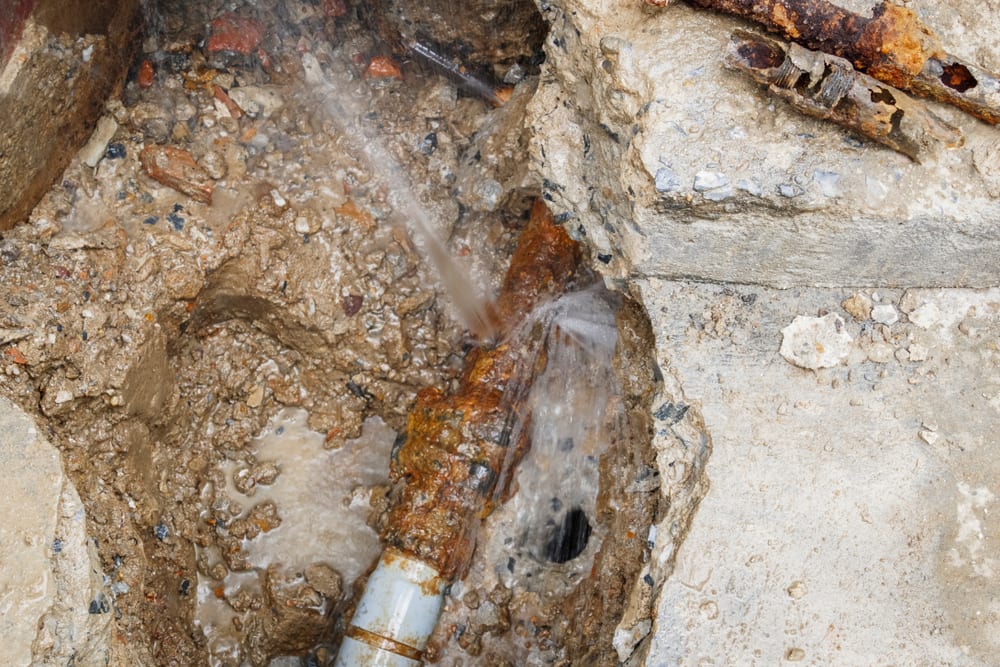
There are a large number of water and sewer pipes beneath the foundation of a household that you are probably unfamiliar with. These pipes connect to your local municipality’s main water supply lines and sewage system. Although the pipes in the slab foundation on your property are designed to deliver water to your fixtures without a problem, the pipes can start to corrode and crack as your house becomes older. Once a pipe in your slab foundation is damaged, it can be extremely difficult or impossible to detect the signs of a water leak. To help you protect the foundation of your house, we have compiled a list of the most ordinary causes of slab leaks and ways to fix it.
Table of Contents
What is a Slab Leak?
Houses are built on a solid concrete foundation that is referred to as a slab. This piece of concrete is integrated with water, sewage, and gas lines that are designed to provide your household with water. As the pipes beneath your property become older, it is not abnormal for cracks and holes to form. Once a pipe that is located directly below your slab foundation becomes damaged, the water in the pipes may start to leak.
Unfortunately, the surrounding soil will start to absorb the moisture and cause the ground to become unsettled. When the ground beneath your house becomes too wet and unstable, the concrete slab foundation will start to crack and deteriorate. If the leak in your concrete slab is not fixed quickly, the foundation of your property will start to move. This will cause the floors and walls in your house to crack or collapse.
Causes of Slab Leaks
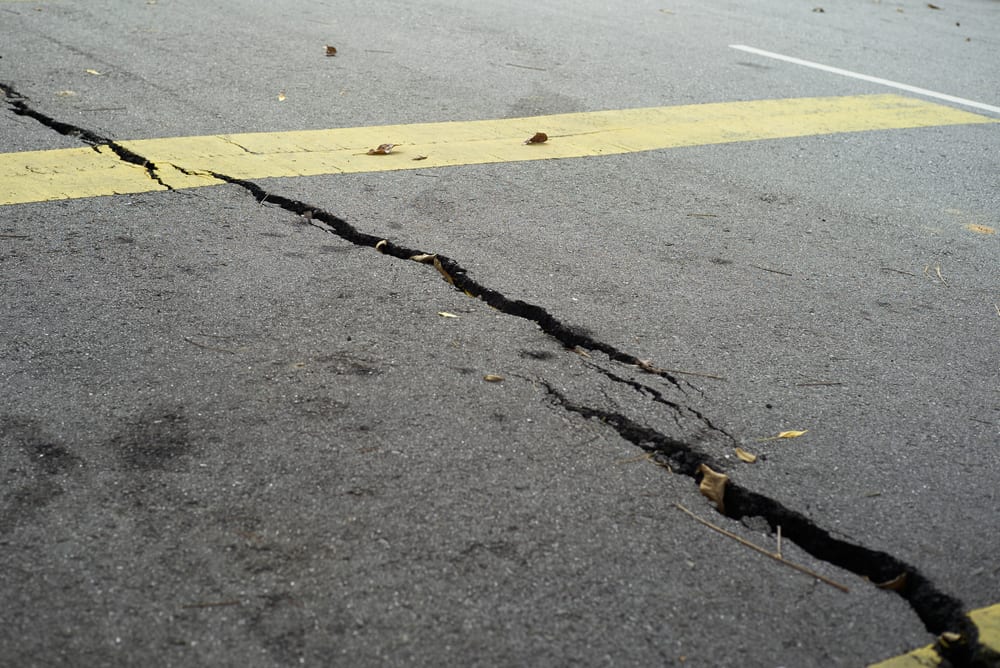 Earthquakes
Earthquakes
The vibration in the ground from earthquakes can have devastating effects on the pipes in the concrete slab beneath your home. Although slab leaks are unavailable as the pipes beneath the ground start to deteriorate, the vibrations from earthquakes cause joints to become loose between pipes. In addition, the movement of the ground can cause cracks and holes to form in pipes.
If you hear noises that resemble running water in your household, this is a sign of a slab leak. On the other hand, a hot spot on the floor in your house is an indicator of a leak in a hot water pipe. Once a leak forms in your slab foundation, you may start to notice mold and mildew on the floors, walls, or ceiling in your home.
Water is Highly Acidic
Depending on your city or suburb, the hard water can be extremely acidic. The average pH level of hard water ranges from 1 pH to 4 pH. If the water in your area is too acidic, the pipes beneath your slab foundation will slowly start to degrade and crack over the years. To combat this issue, a large number of homeowners choose to invest in a water softener to eliminate minerals such as magnesium and calcium in the water. Although investing in a water softener can prolong the life of your pipes, there are instances where it can damage the pipes in your foundation.
The standard pH level of soft water varies from 9 pH to 14 pH. If the water in your local suburb has an excessive amount of alkaline, the pipes beneath your slab foundation will gradually start to disintegrate and leak. An easy way to confirm if you have acidic water is to look for green or blue stains in your kitchen or bathroom sink, shower, or toilet.
Tips & Insights: What Are the Differences Between PVC-U & PVC O Pipes?
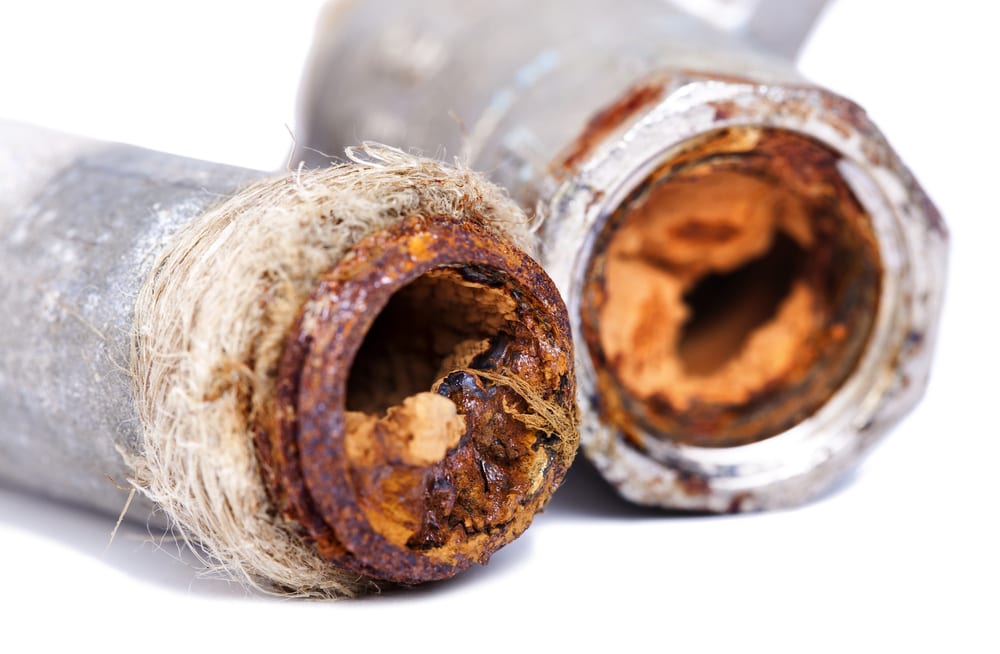 Deteriorating Copper Pipes
Deteriorating Copper Pipes
Older homes are more susceptible to slab leaks because they were constructed with copper and Orangeburg sewer pipes. Ordinary causes of corrosion in copper pipes include high levels of salts dissolved in the water, acidic water with pH levels below 7.0, high quantities of liquefied oxygen, incorrect grounding of electrical hardware to copper pipes, and alkaline water with pH levels above 8.5. If the copper pipes below your foundation have cracks or holes, a severe slab leak will start to form.
Abrasion
As the pipes in your foundation circulate water to the appliances and sinks in your household, the movement of water can cause the pipes to scrape against the concrete slab on your property. In addition, the pipes can brush against other types of objects such as gravel, dirt, and other pipes. Once a pipe begins to rub against the concrete foundation, the total amount of friction increases and causes damage to the exterior of your pipes. If the exterior of your pipe walls becomes too thin, a water leak will form near your slab foundation.
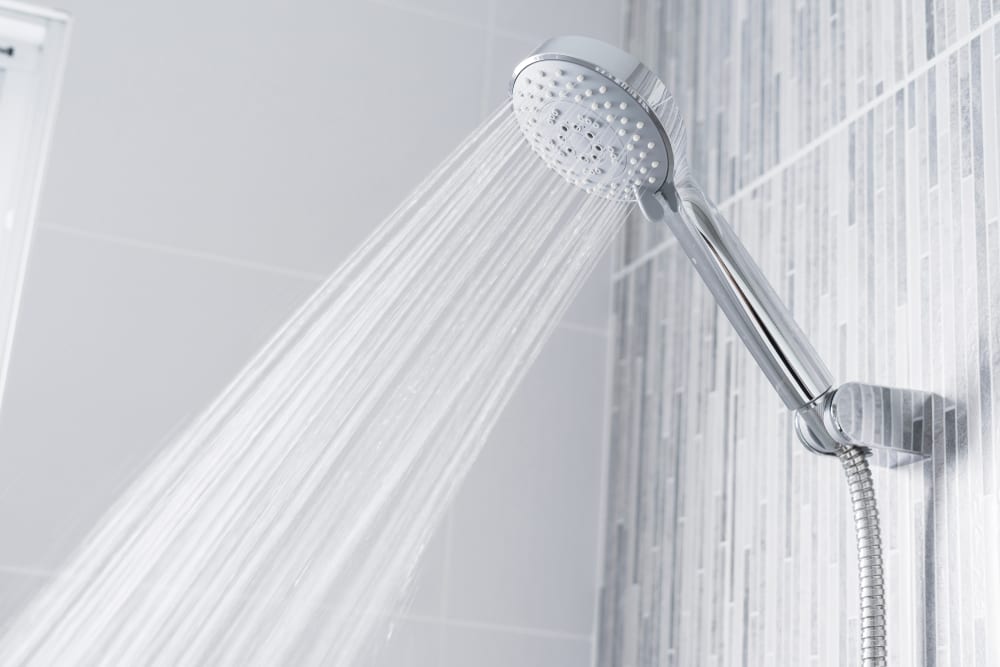 High Water Pressure
High Water Pressure
High water pressure can cause the pipes below your slab foundation to crack or collapse. Ordinary signals of high water pressure include rattling noises when the water is activated and dripping faucets. To confirm if the water pressure in your household is too high, purchase a water pressure gauge. This type of gauge is engineered to measure the pounds per square inch (PSI) in your water lines.
The average water pressure rating varies from 40 to 80 pounds per square inch depending on your city or suburb. If your water pressure is higher or lower, the pipes below your floors can become damaged and cause a slab leak. An easy way to avoid this type of problem in the future is to install a water pressure-reducing valve on your property to protect your pipes.
Disintegrating Orangeburg Pipes
If you notice cracks in your ceiling or walls, this is an indicator of a slab leak on your property. This type of leak is commonplace on older properties that were built with Orangeburg sewer pipes. Unlike other types of piping materials, Orangeburg pipes will start to deteriorate if they are exposed to chemicals such as polymers, household cleaning agents, oils, and drain cleaners.
Orangeburg pipes are assembled with bitumen cement that does not respond well to chemicals. Chemicals such as drain cleaners and bleach will cause the interior of the Orangeburg pipes to decompose. To confirm if you have Orangeburg pipes beneath your floors, call a licensed plumber in St. Augustine, FL to perform an inspection.
Signs of Slab Leaks
 High Water Bills
High Water Bills
Once a water leak forms beneath the ground of your house, an excess amount of water will start to escape from your pipes and be absorbed by the ground. Since you are continuously losing water due to a crack in your pipe, the total cost of your water bill will increase if a slab leak is not fixed quickly by a certified technician.
Low Water Pressure
When a leak forms beneath your concrete foundation, a large supply of water will escape prior to reaching your sink or shower. This type of water leak may be responsible for the low water pressure in your household. If you notice a significant decline in water pressure when all of your sinks and fixtures are off, this is a signal of a pipe leak near your foundation.
Tips & Insights: How to Eliminate Hard Water in Your Home
Wet Floors
The type of floor material at risk of becoming damaged due to a water leak are wood floors. Once a pipe becomes damaged beneath your floors, the water from the leak will rise into your living area. If the slab leak is not fixed quickly, the wood floors will start to warp and become discolored.
On the other hand, a pipe leak may be the source of irreversible damage to your carpet. Normal signs of a pipe leak include dark spots and moisture in your carpet. Prior to concluding you have a leak in your slab foundation, inspect the odor of the moisture in your carpet. The moisture may be caused by an accident from your pet or by a spilled drink.
 Strange Odors
Strange Odors
Households with carpet are particularly susceptible to mold growth. Once a pipe leak forms beneath your flooring, the padding below your carpet will begin to absorb the moisture. If the padding becomes too wet, it will need to be replaced to prevent the formation of mold and mildew. Do not try to extract the water in your carpet with a vacuum. In most cases, a vacuum is not powerful enough to remove all of the moisture in the padding of your carpet. Immediately replace both the padding and carpet to avoid mold growth and odors in your living and dining rooms.
3 Ways to Repair a Slab Leak
There are a variety of methods that can be used to fix a slab leak beneath the ground. The best way to fix a water leak will vary depending on the location of the damaged pipe. In addition, the total cost to fix a leak in your foundation will vary from a couple hundred dollars to a thousand dollars or higher. To help you resolve a leak in your foundation, we have outlined 3 ways to fix a slab leak.
Repiping
The cost of removing concrete from your foundation to replace a damaged pipe is a couple thousand dollars. To avoid removing your beautiful floors, a faster way to fix a slab leak is to reroute a brand new pipe outside the concrete foundation or in the attic of your household. An advantage of installing a new pipe instead of replacing the damaged pipe in your foundation is accessibility. The brand new pipe will be easily accessible in the ground surrounding your foundation or in the attic.
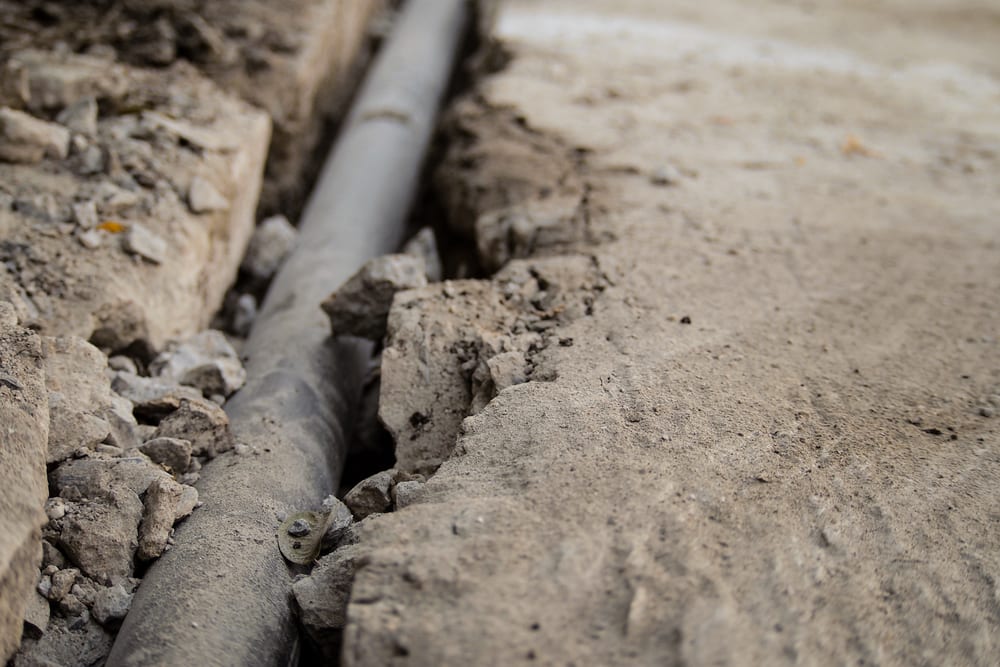 Drill a Hole to Replace a Section of the Pipe
Drill a Hole to Replace a Section of the Pipe
If a small portion of a pipe is broken, a normal solution to fix this problem is to drill through the concrete slab to replace a short section of the damaged water pipe. This is not a popular option with homeowners because it requires removing wood or tile floors to gain access to the concrete slab.
Tips & Insights: Why Is My Furnace Turning On & Off Every 5 Minutes?
In addition, replacing a small section of a pipe does not guarantee that you will not encounter a slab leak in the future. If a single area of your pipe is cracked, other portions of the pipes are likely deteriorating as well. A second portion of your pipe may crack in the future and require a second pipe replacement.
Install Pipe Lining
A non-invasive way to fix a water leak below your foundation is to insert a thin layer of epoxy coating in the interior of your galvanized steel or copper pipes. Once the epoxy is embedded in your pipe, it will harden to cover the holes and cracks in your existing pipes.
Plumbing Services
Our team of emergency plumbers in St. Johns, FL have the tools, skills, and experience required to fix a slab leak beneath the ground on your property. We offer plumbing repair and installation services for old water lines and sewer pipes. In addition, our staff of certified technicians offers maintenance and replacement services for water heaters, garbage disposals, sump pumps, and water softeners. Fenwick Home Services has been providing dependable plumbing solutions to residents in Jacksonville and other areas since 1969. We offer same day services, clear pricing, and credible warranties.

